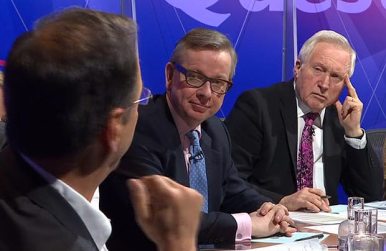The Tories aren’t getting rid of the whole concept of human rights, but they aren’t scrapping the act for ‘legislative control’ either

The Machiavellian figure of Michael Gove is strangely likeable in some anti-hero way (for me at least). He’s quite the political operator – forcing through education legislation that many in his own party were opposed to, as well as most in the teaching occupation (a YouGov poll detailing the voting intention of teachers showcased a 17% fall in Conservative support during his time as Minister for Education). It is almost inevitable that his push towards scrapping the Human Rights Act will succeed.
This intention to repeal the Human Rights Act has been ridiculed literally thousands of times since Gove’s appointment, partly because it is Michael Gove is spearheading the charge, rather than a centrist, Cameronite Conservative, and partly because many sincerely believe that a Tory government will not protect the British peoples’ right to life. A few ridiculous posts on Twitter suggest that torture will be brought back in earnest, with many Category D prisons being converted into labour camps for political opponents. Those who think rationally will know that this is not the case. Too many in the Conservative party are of the libertarian mindset for this to be the case (Boris Johnson, for example), and it would be a political miscalculation of Watergate-esque proportions to even indulge in the idea of a quasi-authoritarian state (it would be hard to see a Tory re-election if such reforms were brought in).
The proposals for a British Bill of Rights to replace the aforementioned Human Rights Act will entrench most (if not all) provisions outlined in the European Convention on Human Rights, and it would be foolish to think otherwise. I do accept that the new provisions outlined in the BBoR will probably take away the rights of those accused of terrorist offences, but we definitely won’t be seeing martial law anytime soon.
On the other side of the argument are the typical Conservative loyalists (‘DO NOT DEVIATE FROM PARTY LINE’) who claim that the abolition of the Human Rights Act will bring lawmaking back home, and allow for a fairer justice system with more effective parliamentary scrutiny.
The Tory strategy paper published last October implied that Britain has no authoritative control over its own laws when Strasbourg is involved, with ex-Secretary of State for Justice Chris Grayling saying:
‘We cannot go on with a situation where crucial decisions about how this country is run and how we protect our citizens are taken by the European Court of Human Rights’.
I expect Chris Grayling knows that this is not strictly true. British courts are not bound by the judges and judgements made by said judgements on cases of human rights – the Strasbourg judiciary simply recommends that British judges follow their guidelines. We regularly depart from the rulings and advice of ECHR judges, and will likely continue to do so whilst the HRA remains in place.
Instead of a relocation of power from Europe to Britain, the real aims of the act are to placate both the slightly Eurosceptic British public and Conservative backbenchers, who see the very adoption of rights that are enshrined by European judges as corrosive to national pride and sovereignty (ironically, the convention was drafted by a British MP and lawyer).
Think of the abolition of the Human Rights Act as a slight tip of the hat to MPs such as Jacob Rees-Mogg rather than an intention to develop some Pinochetan (as far as I’m aware, there is no word for things alluding to General Pinochet) plot to convert the UK into a totalitarian neoliberal hellhole, and you won’t be far off.
Toby Cox
ElMoboPolitics